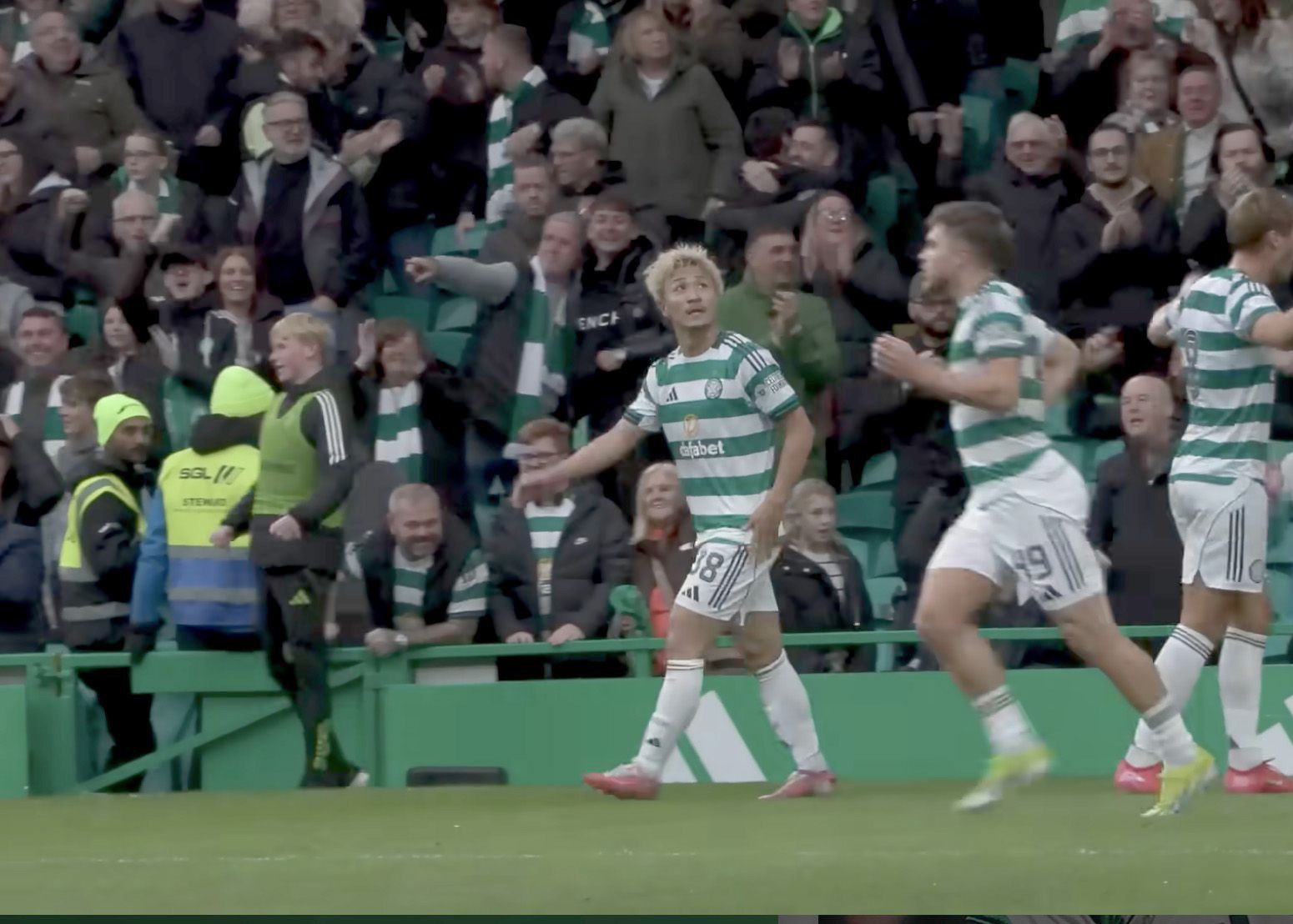IT’S been a tense and emotional week for Celtic and one that exposed the growing divide between supporters and the club’s leadership while also offering a fleeting reminder of unity on the pitch. The Celtic Fans Collective meeting with the board on Monday came at a pivotal time, arriving just a day after a dramatic 3–2 win over Motherwell that briefly lifted spirits.
The late victory could not have been better timed. Celtic had looked on the verge of another frustrating draw until deep into stoppage time when Daizen Maeda’s brave diving header after delightful interplay between Arne Engels and Michel-Ange Balikwisha rescued the points and sent Parkhead into euphoria. After weeks of discontent and anger directed at the board, the win momentarily reconnected the stands with the team.
Fans who had spent the build-up debating statements and protests suddenly remembered what it feels like to lose themselves in pure emotion. That goal and the resilience it represented eased the pressure just enough to let everyone take a breath before the more serious matters of Monday night.
Representatives from the Celtic Fans Collective met with senior club officials, including chief executive Michael Nicholson and finance chief Chris McKay. The invitation to meet had been issued by the club only days earlier and the Collective’s official statement confirmed that they had accepted in good faith. It was a move seen as a breakthrough after months of growing tension. The fan groups made it clear they welcomed the club’s decision to meet and engage directly on the issues raised, but they also warned supporters not to mistake the gesture for genuine change. As their statement put it, they remained under no illusions about the scale of change still required at board level.
The Collective also announced that as a sign of goodwill the planned continuation of the three-match silent protest would be postponed. That action, which involved coordinated periods of quiet in the stands to highlight the disconnect between board and fans, had become one of the most visible symbols of dissent this season. Postponing it was a significant gesture, an olive branch extended in the hope that dialogue could replace division. The group emphasised that the decision was made in good faith in the hope and expectation that supporters will now receive full and honest communication from the club.
The statement struck a tone of cautious optimism while making clear that the Collective’s long-term mission would continue regardless of what happened in the meeting. They thanked every supporter who had backed the campaign and helped bring the board to the table, saying it proved the power of unity and collective pressure. Without that unity, the statement said, the board’s invitation to talk might never have come. The Collective ended by reaffirming that their campaign would go on with the clear aim of securing meaningful positive change for the betterment of Celtic Football Club and its supporters.
The meeting itself was, according to those close to it, both constructive and frustrating. While it was a rare instance of direct dialogue between fan representatives and the board, the exchange exposed just how far apart the two sides remain. The board’s tone was said to be polite and professional but their responses often fell short of the accountability supporters were seeking. Questions about long-term planning, the structure of the board and decision-making on transfers reportedly received vague or defensive answers.
Fans want more than reassurance, they want evidence that lessons have been learned from the summer’s failings when poor recruitment and Champions League disappointment left the fanbase questioning leadership. Yet the sense after the meeting was that the club still viewed the problems as matters of perception and communication rather than the deep structural issues all too evident to the fans. The Collective’s subsequent communications hinted that while the conversation had been worthwhile, there’s still a mountain to climb to rebuild trust.
The board, for its part, later released its own summary that struck a slightly softer tone. It acknowledged that improvements were needed and that the dialogue would continue. There was talk of greater transparency, potential publication of meeting minutes and future engagement with fan representatives. But for many supporters those promises rang hollow without tangible proof of reform. The fundamental criticism that Celtic’s board is risk-averse unaccountable and too insulated from the voice of the terraces remains unresolved.
Still, the very fact the meeting took place marks a step forward. Celtic’s hierarchy rarely agrees to face fans in this way and the decision to do so was an admission that supporter pressure had reached a level that could no longer be ignored. The Collective’s campaign has demonstrated that when fans are organised, articulate and unified, their influence can reach even the most entrenched boardroom. Whether this meeting leads to genuine change or becomes another exercise in optics will depend on what happens next.
The context makes it all the more delicate. Celtic remain top of the league but performances have been uneven and the atmosphere around the club has grown increasingly fractious. The late winner against Motherwell offered a glimpse of joy but played out to a background of thousands of empty seats, it also underlined how fragile morale is. Each setback on the pitch risks reigniting the anger that the board is struggling to contain off it. For supporters, patience is wearing thin. They no longer want platitudes about communication, they want a vision for the future and a leadership that reflects the ambition of the fans who fill the stadium every week.
For now, there is a sense of uneasy truce. The Collective has paused its protest, the board has listened and both sides have agreed to continue talking. But the undertone is clear: This is only the beginning of a longer struggle for accountability and modernisation at Celtic Park. The fanbase has shown that it is capable of unity and strength when it matters and the club’s leadership has been reminded that its power is not absolute.
The events of the last week captured the full spectrum of what it means to support Celtic: Frustration, pride, anger, elation and defiance. A stoppage time winner briefly lifted the gloom while the meeting that followed brought reality back into focus. Celtic’s future on and off the pitch now depends on whether the energy that drives the supporters can finally be matched by courage and clarity from those in charge.




